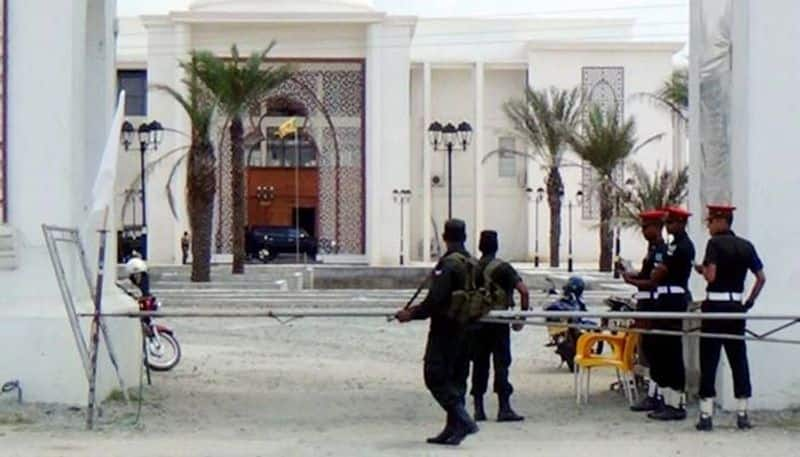After clashes broke out between a group of Muslims and Sinhalese, Sri Lanka has reimposed curfew and banned social media, in a move to curb the spread of rumours.
Negombo: Sri Lanka has once again imposed a curfew in the city of Negombo - where a blast took place on Easter Sunday. This, in a bid to contain religious violence.
Negombo was gripped in tension after authorities prepared to reopen public schools post an extended Easter vacation.
Also read: Sri Lanka blasts: Catholics turn to TV mass amidst bomb threats
Reports cited Sri Lanka military spokesman brigadier Sumith Atapattu saying that the fight on Sunday was between ethnic Sinhalese people and Muslims.
Atapattu said, "At least two motorcycles and two three-wheeler taxis have been damaged in the clashes. We declared curfew till 7am (01:30 GMT) to contain the unrest."
There were no immediate reports of casualties.
The country's main international airport is located in the area, but police said there was no disruption to airport traffic. Elite Special Task Force commandos were deployed to patrol the streets, police said.
Also read: Sri Lankan police want more help from India after Kerala-Kashmir angle to blasts surfaces
Atapattu further said that an investigation was underway into the clashes and the violence between Muslims and Christians since the April 21 attacks targeting three churches and three luxury hotels in the country.
The Sri Lankan government has also reimposed a ban on social media platforms in an effort to stop the spread of rumours after the violence.
Also read: Sri Lanka army chief: Suicide bombers trained in Kashmir, Kerala
Sri Lanka has been under a state of emergency since the suicide bombings. Security forces and police have been given sweeping powers to arrest and detain suspects for long periods.
Police spokesman Ruwan Gunasekera said, "Police and soldiers combed school premises and the surrounding areas to make sure it is safe for children to go back" on Monday.
On Easter Sunday, Sri Lanka came under terror attacks where nine suicide bombers including a woman blew themselves up at various locations across the island country. Several people have been arrested in connection with the blasts. As many as 250 people were killed in the serial blasts.
The Sri Lankan authorities suspect that the blasts were carried by a splinter group of the local islamist group National Thowheed Jama’ath.
The Islamic State did claim that the attacks were carried out by them, but the Sri Lankan police have not acknowledged it so far.
Last Updated May 6, 2019, 1:51 PM IST











![Salman Khan sets stage on fire for Anant Ambani, Radhika Merchant pre-wedding festivities [WATCH] ATG](https://static-ai.asianetnews.com/images/01hr1hh8y86gvb4kbqgnyhc0w0/whatsapp-image-2024-03-03-at-12-24-37-pm_100x60xt.jpg)
![Pregnant Deepika Padukone dances with Ranveer Singh at Anant Ambani, Radhika Merchant pre-wedding bash [WATCH] ATG](https://static-ai.asianetnews.com/images/01hr1ffyd3nzqzgm6ba0k87vr8/whatsapp-image-2024-03-03-at-11-45-35-am_100x60xt.jpg)



